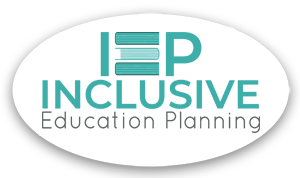I follow several people with lived experience of disability on social media as it provides valuable insights into their thoughts about education. While I often agree with their concerns about education, there are times when my understanding of the science of learning collides with their viewpoint. For instance, the statement below was made by Harry Thompson PDA Extraordinaire, who identifies as neurodiverse, and it had a significant number of people in agreeance:
‘We already have an inbuilt education system that we carry around with us, and from a young age, we develop our very own approach to learning. The concept of school just doesn’t make sense….. We do not need the interference of an outsider telling us that we should do away with our perfectly sound and effective learning style, in favour of some second-rate, half baked idea, lower in quality than our method, concocted by the mind of another. It’s patronising and insulting and quite frankly delusional.’
Harry’s concept of an inbuilt education system is referred to as ‘unschooling’. Unschooling is considered to be a lesson and curriculum free implementation of home-schooling. It is focussed on choice and self-direction and is in opposition to explicit instruction. Unschooling encourages children to initiate activities and explore their personal interests. But the philosophy of unschooling is not new.
The roots of the unschooling movement can be traced back to the 18th-century philosopher Jean-Jacques Rousseau. This philosophy then rose to prominence again in the anti-establishment theories of the 1960s proposed by John Holt, the American author of How Children Fail, Escape from Childhood and How Children Learn. A more recent unschooler is Peter Gray, who published the book ‘Free to learn’ in 2013. He is a Research Professor of Psychology at Boston College, specialising in evolutionary perspectives on psychology. Peter’s son had a negative experience in school, and this encouraged Peter to seek alternate education routes, and he finally came across the notion of unschooling. Peter believes we can learn from hunter-gatherer societies about the best way to educate young people. In 2019 a film was made about unschooling to encourage parents to embrace this approach to education.
But does unschooling work?
While there is dissatisfaction with the current education system and many students with disability struggle in schools that are not welcoming, unschooling is not the answer. There is a lack of empirical data on unschooling, but the science of learning directly opposes the unschooling movement. Science tells us that for all students to learn they require:
- Explicit instruction rather than discovery learning.
- To put effort into learning, and children will avoid effort if offered the choice to do so.
- To be introduced to knowledge and information they are unaware of.
Hence, unschooling cannot be successful as it directly conflicts with the strong evidence that we have about how children learn. The philosophy of unschooling has confused two types of knowledge, biologically primary knowledge, which we learn without conscious effort, and biologically secondary information, which is slow and requires effort (Geary 2007). Examples of the former include listening, speaking, recognising faces and basic social skills, while the latter includes academic activities such as literacy and numeracy. When our society moved from hunter-gathering to a more advanced way of living, it became essential for children to be taught biologically secondary information as they are unable to learn this information by themselves.
In a recent interview with Peter Gray, he discussed the free school Sunbury that was established on the unschooling philosophy. While he claimed that every child at Sunbury learnt to read without formal instruction, he also stated that Sunbury was not successful for students with disability. So if you a parent of a child with disability who is considering this approach, the evidence tells us that your child has a much better chance of obtaining an education at a traditional school than through unschooling.
Geary, D.C. (2007) Educating the Evolved mind: Conceptual Foundations for a Evolutionary Psychology in Carlson, J.S & Levin, J.R. (Eds) Psychological Perspectives on Contemporary Educational Issues Greenwich: Information Age Publishing





I believe your response to Harry’s comments are too short and not considered enough. I am a parent of two PDA autistic children. While I support inclusive education, I have to disagree that traditional schools are the right place. Your view of inclusive education (of which I have studied some subjects at university masters level, are idealistic. Most schools are not sufficiently resourced to cater for diverse learning needs. While university level research advocates for individual and inquiry style learning, the reality is very different in the average suburban public primary school. For families of PDA children, there are very few options. I appreciate your experience parenting a child with a disability, but PDA like all disabilities is highly unique and cannot be considered WITH other disabilities. In fact, every autistic person is extremely unique and the majority of the information available for teachers and other education professionals is standardised and depersonalised. My oldest child attempted to fit into the mainstream education model but the only thing that works for his wellbeing at this stage is unschooling. Unschooling isn’t not learning, it’s just a much freer and more relaxed way of learning. We provide a rich environment of literacy and numeracy activities but he has freedom of when and how to do them. If we were to meet your standards of education, we would have a different child to manage, one who was extremely anxious, who would have ‘behavioural concerns’ or who could only cope with significant medication. Is that the world we really want? I appreciate your experience and perspective but it is not nuanced and is not considerate of the lived experience of PDAers.